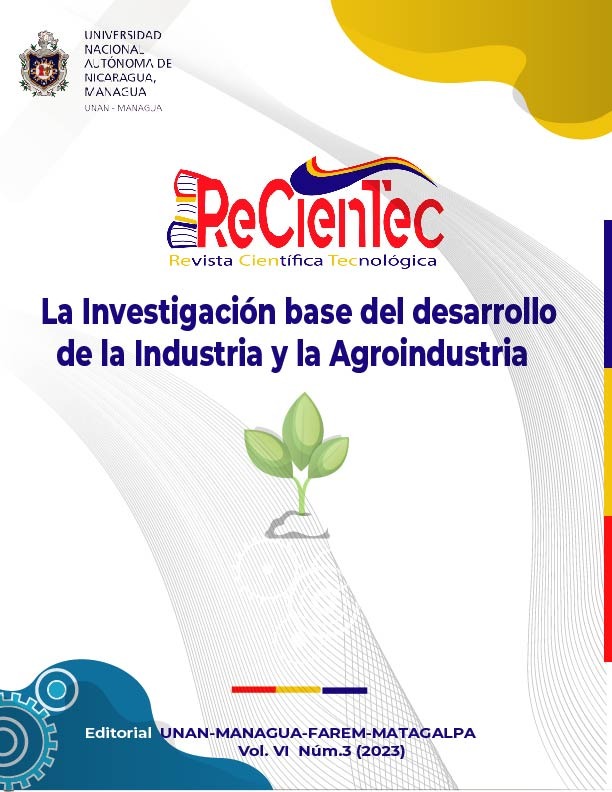Aplicaciones de las derivadas parciales en las Ciencias Económicas: Productividad marginal
Palabras clave:
productividad marginal, derivadas parciales, ciencias económicas, resolución de problemasResumen
De acuerdo a la relación de la matemática con las ciencias económicas, se llega a la aplicación de modelos matemáticos que permitan darle solución a diversas situaciones económicas, por tal razón la presente investigación se fundamenta en la resolución de problemas de derivadas parciales. Son cada vez más los economistas y administradores que consideran que la utilización de la Matemática, como lenguaje simbólico y método de razonamiento científico, constituye un elemento de ayuda inestimable en las tareas de dichas ciencias. El objetivo de este artículo es disponer de una guía de problemas con sus respectivas soluciones, mediante derivadas parciales aplicadas en el área de Administración y Economía. Se utilizó un análisis descriptivo y un enfoque mixto con predominancia cualitativo, Para ello, se combinan el análisis de contenido, los métodos inductivo e hipotético – deductivo y la experiencia docente de los autores. Como resultados se obtiene la solución de cinco problemas, de diferentes fuentes, esto contribuye al desarrollo del aprendizaje significativo, puesto que se toman aspectos de innovación, además permite fortalecer el pensamiento crítico.
Descargas
Citas
Abreu, J. L. (Julio de 2012). Hipótesis, Método & Diseño de Investigación. International Journal of Good concience , 187-197. Recuperado el 8 de Diciembre de 2022, de http://www.spentamexico.org/v7-n2/7%282%29187-197.pdf
Cachanosky, J. C. (1985). LA CIENCIA ECONOMICA VS. LA ECONOMIA MATEMÁTICA .
Centeno, E. A., & Quimbaya Torres, J. V. (2012). Modelos Económicos. Colombia.
García, L., Moreno, M., Baldira, E., & Azcárate, C. (2011). Historia y aplicaciones de la derivada en las ciencias económicas: Consideraciones didácticas. Méridda, Venezuela.
Haeussler, J. E., & Richard, J. W. (2008). Matemáticas para administración y economía. México: Cámara Nacional de la Industria Editorial Mexicana. Reg. Núm. 1031.
Hernández Mendoza , S. L., & Duana Avila , D. (2020). Técnicas e instrumentos de recolección de datos . Boletín Científico de las Ciencias Económico Administreativas del ICEA, 9(17), 51-53. Recuperado el 30 de Septiembre de 2022, de https://repository.uaeh.edu.mx/revistas/index.php/icea/issue/archive
Hernández Sampieri, R., Fernández Collado, C., & Baptista Lucio, M. d. (2014). Metodología de la investigación. México.D.F: McGraw-Hill Interamericana.
Herrera Castrillo, C. J. (2023). Interdisciplinariedad a través de la Investigación en Matemática y Física. Revista Chilena de Educación Matemática, 15(1), 31-45. doi:https://doi.org/10.46219/rechiem.v15i1.126
Lardner, R. W., & Arya, J. C. (2009). Matemáticas Aplicadas a la Admiistración y Economía. México: PEARSON EDUCACIÓN .
Leithold, L. (1994). El cálculo. México: Mapasa S.A.
Meza, M. M. (2011). Cálculo III. Lima-Perú: THALES S.R.L.
Moriana, M. B. (2003). ECONOMÍA Y MATEMÁTICAS; PRODUCTIVIDAD, TRABAJO Y DISTRIBUCIÓN DE. Madrid-España.
Romero, N. P. (2017). La matemática como herramienta para entender la economía dentro de la perspectiva de investigación de la Universidad Nacional Mayor de San Marcos. Perú.
Stewart, J. (2012). Cálculo de varias variables-Transcendentes tempranas séptima edición . México: Cengaje-Learning.
Taylor, S. J., & Bogdan, R. (2001). Introducción a los métodos cualitativos de investigación (3 ed.). Paidós Ibérica, S.A.
Vásquez, A. S. (2014). Matemáticas aplicadas a las ciencias económicas y Administrativas, simplicidad Matemática. México: Grupo Eeditorial Patria.
Descargas
Publicado
Número
Sección
Licencia

Esta obra está bajo una licencia internacional Creative Commons Atribución-NoComercial-CompartirIgual 4.0.


